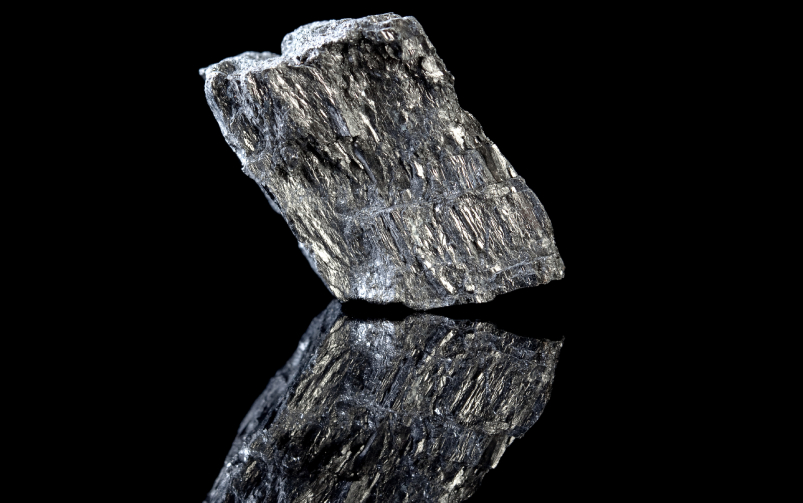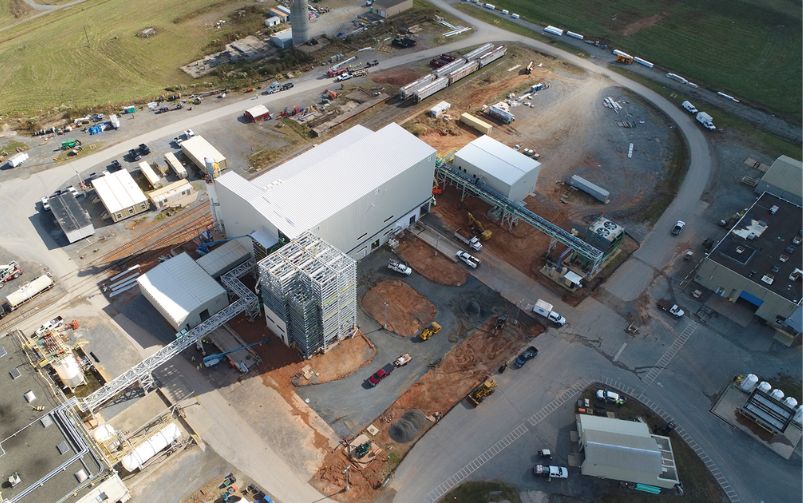Skeena Resources’ Eskay Creek revitalization project in Tahltan territory in northwest British Columbia. Courtesy of Skeena Resources.
Welcome back to your weekly mining news recap, where we catch you up on some of the news you may have missed. This week’s headlines include a new way of using lithium scrap metal, Vale adopting wind power on a large ore carrier and the CIM Capital Projects Symposium is starting in Vancouver on Sunday.
After back-and-forth talks, restructuring attempts and negotiations, Glencore will buy the majority of Elk Valley Resources, Teck’s newly created steelmaking coal business, in a US$6.9 billion cash deal. Glencore will own 77 per cent of Elk Valley Resources. Additionally, Japanese company Nippon Steel Corp. will own 20 per cent and South Korean steel giant POSCO will own the remaining three per cent. The companies are optimistic that the deal will receive approval from the federal government, which will review it under the Investment Canada Act.
A $1 billion lithium-ion battery plant that will be built in B.C. was announced by Prime Minister Justin Trudeau and B.C. Premier David Eby on Tuesday, as reported by CBC. The federal government will fund up to $204.5 million of the project and the province will contribute up to $80 million, while Taiwanese battery manufacturer E-One Moli Energy and other investors are set to foot the rest of the bill for the new facility in Maple Ridge. One citizen advocacy group criticized the announcement as another handout, while the plant is projected to create 450 permanent jobs after the facility is operational, which is anticipated to be sometime in 2028.
Ontario has increased workplace safety fines for convicted companies under new legislation, as reported by Northern Ontario Business. Ontario has become the province with the highest maximum workplace safety fines, of up to $2 million, for companies that are convicted under the revised Occupational Health and Safety Act, which received Royal Assent last week.
Refitting is under way for the largest wind-powered iron ore ship in the world, which is owned by Vale, as reported by Sudbury.com. The adaptation work on the Sohar Max, which is part of the company’s Valemax fleet of large ore carriers and can carry 400,000 tonnes of cargo, is expected to be completed in the second quarter of 2024. The wind propulsion technology that will power the ship is part of a pilot project between Vale and shipowner Asyad, which will install rotor sails on the ship.
New interest in Trevali Mining’s Caribou zinc-lead-silver mine in New Brunswick may lead to a restart in production, as reported by Canadian Mining Journal. The Caribou mine suspended operations last year and earlier this year, Trevali’s New Brunswick division was placed in receivership. FTI Consulting Canada, Trevali’s court-appointed monitor from the receivership process, is planning on postponing the auction of the asset after three unnamed parties expressed interest in restarting Caribou’s production. Canadian Mining Journal reported the news was announced in a press release from Canadian Copper, which expressed enthusiasm as restarting Caribou could mean using the site’s existing mineral processing plant to toll ore at its Murray Brook West project, located 10 kilometres from the Caribou mine.
Skeena Resources’ Eskay Creek revitalization project in B.C. is the newest rising star in gold mining after a $2 billion after-tax net present value (NPV) evaluation in its new definitive feasibility study (DFS), as reported by Engineering News. Skeena’s 2023 DFS predicts a base case after-tax NPV of $2 billion. The predicted NPV in its 2022 feasibility study was $1.4 billion. The boost is due to “multiple breakthroughs in metallurgy” and increased mineral reserves of about 20 per cent, according to a statement from Randy Reichert, Skeena president and CEO. The gold and silver project, located in B.C.’s Golden Triangle region, increased its preproduction capital expenditure by 20 per cent from the 2022 feasibility study and is projected to bring $474 million annually of free cash flow in the first five years.
Li-Metal Corporation has found a way to reduce lithium production waste through its reprocessing technology, as reported by The Assay. The company’s newly commissioned facility in Markham, Ontario, is reprocessing scrap lithium into ingots, which may be used for anode production, and has successfully produced and shipped its first batch of product. The facility has the annual capacity to process 15 tonnes of anode scrap material.
The annual CIM Capital Projects Symposium will explore the path forward for capital projects in the mining industry through key learnings from case studies and major sessions. The third edition of the symposium will take place at Vancouver’s Westin Bayshore from Nov. 19 to Nov. 21.
Monica Ospina, founder and CEO of O Trade consultancy firm, will be presenting on her company’s innovation-focused and solutions-driven approach at the symposium on Nov. 20. Ospina discussed the importance of the connection between socio-economic inclusion and reducing risk at mining and mineral exploration projects in a Q&A with Ailbhe Goodbody in the November issue of CIM Magazine. Ospina shared how finding balance around inclusivity and engagement leads to productivity in mining projects.
Mary-Jane Piggott, vice-president of Klohn Crippen Berger’s mining environmental group, has spent her career creating space for women in a traditionally male-dominated field, Alice Martin wrote in the September/October edition of CIM Magazine. Piggott shared her journey to becoming the first female vice-president in the company’s history, and her work to create more opportunities for women in the mining industry through mentorship and collaboration.
That’s all for this week. If you’ve got feedback, you can always reach us at editor@cim.org. Have something interesting to add? Join the conversation on our Facebook, Twitter, LinkedIn or Instagram.




